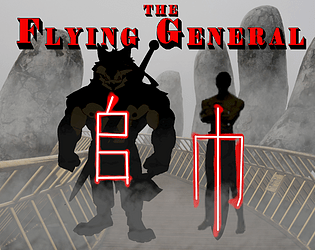Every Persona Game and Spin-Off in Order
Originally conceived as a spin-off of the Shin Megami Tensei series, the Persona franchise has evolved into a standalone juggernaut, cementing its status as a leading force in modern RPGs. With its expansive universe sprawling across sequels, remakes, anime adaptations, and even stage plays, Persona has become a multimedia powerhouse that continues to captivate audiences worldwide.
The latest addition to the franchise, Persona 3 Reload, is now available on PlayStation 5, Xbox Series X, and PC, sparking curiosity among new players about the best starting point. Below, we provide a comprehensive guide to every game and spin-off in the series, including the ideal entry point for newcomers, as well as both chronological and release order listings.
Jump to:
- How to play in order
- How to play by release date
- Upcoming releases
Answer
See Results
How Many Persona Games Are There?
The Persona series boasts a total of twenty games. These include several expanded versions of the mainline entries, featuring new story content or remakes. While direct ports and remasters are excluded, we will highlight each alternate version of the games in the lists below.
Which Persona Game Should You Play First?
For newcomers, diving into Persona 3 Reload, Persona 4 Golden, or Persona 5 Royal is a solid choice. These are the latest iterations of the third, fourth, and fifth mainline entries, respectively, and are available on PC and major consoles, except for Persona 3 Reload, which is not on Nintendo Switch.
Don't worry about missing out on the story by starting with a later game; each entry features a unique narrative with new characters, making them excellent starting points for new players. To help you decide, consider watching gameplay videos and exploring the social links of each game to find what resonates with you.
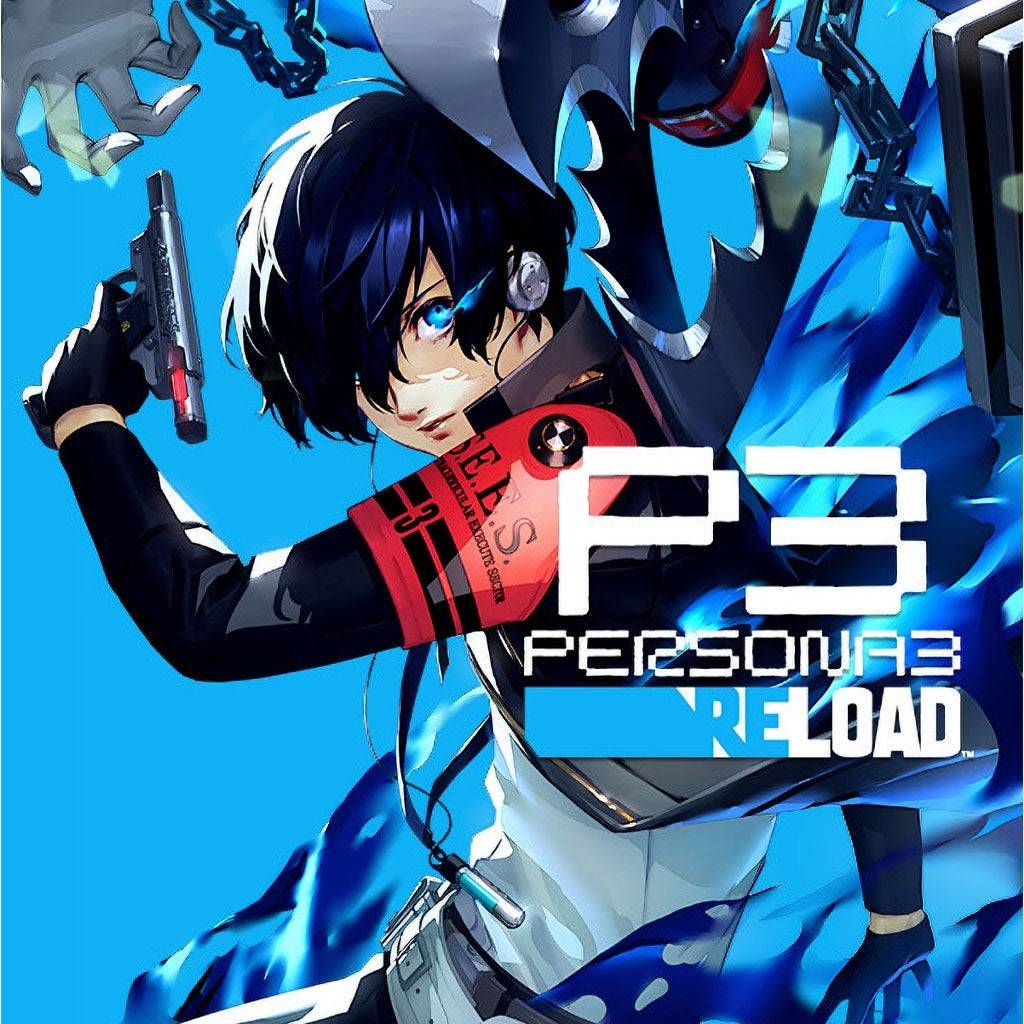
Persona 3 Reload
54
Available on PS5, PS4, and Xbox Series X.
See it at Amazon
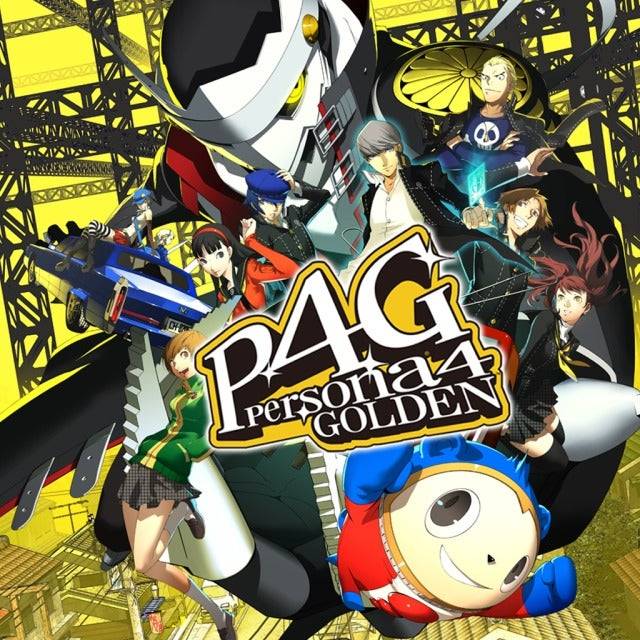
Persona 4 Golden
42
Available on PC, Xbox, PS5, and Nintendo Switch
See it at Nintendo

Persona 5 Royal
103
Available on PC, Xbox, PS5, and Nintendo Switch
See it at Amazon
Every Persona Game and Spin-Off in Chronological Order
These blurbs contain mild spoilers for each game, including characters, settings, and story beats.
1. Revelations: Persona (1996)
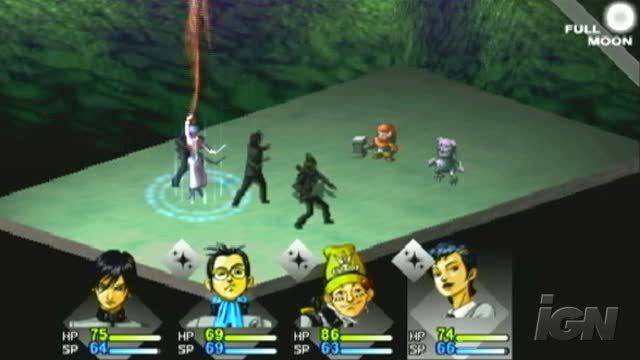
The inaugural game of the series, Revelations: Persona, was Atlus' response to the positive feedback on Shin Megami Tensei: If…, another high-school-themed spin-off. Building on the beloved concept, Revelations: Persona introduced a full-fledged dungeon-crawling RPG where high school students in Mikage-cho battle supernatural forces using their awakened Personas. This game laid the foundation for the franchise, introducing key elements such as combat with Personas, the Velvet Room, and a youthful cast of heroes.
2. Persona 2: Innocent Sin (1999)
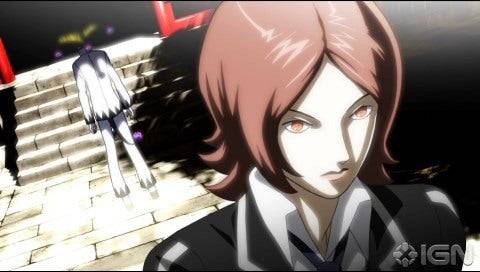
The second entry, Persona 2: Innocent Sin, launched in 1999 and follows a new group of high school students led by Tatsuya Suou. They combat a villain called Joker and the Masked Circle cult amidst a plot where rumors in Sumaru come to life. The game maintains the series' focus on dungeon exploration, Persona combat, and party development, and was followed by a direct sequel, Persona 2: Eternal Punishment, a year later.
Read our review of Persona 2: Innocent Sin.
3. Persona 2: Eternal Punishment (2000)
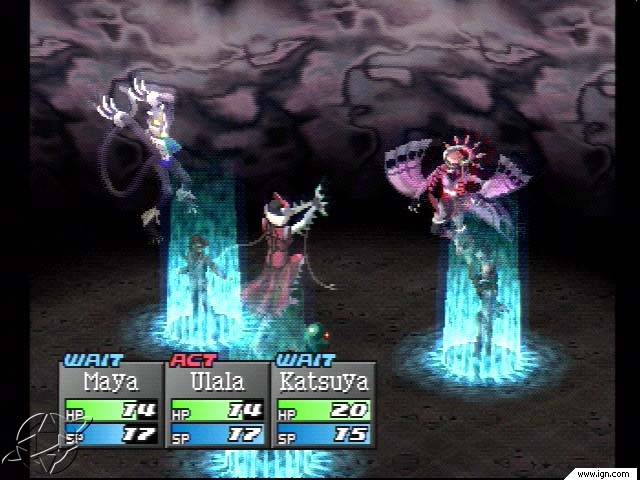
Continuing from Innocent Sin, Eternal Punishment features Maya Amano as the protagonist, who investigates the Joker Curse. This sequel directly continues the story with similar turn-based, dungeon-crawling gameplay, emphasizing Persona use and party building.
Read our review of Persona 2: Eternal Punishment.
4. Persona 3 (2006) / Persona 3 FES (2007) / Persona 3 Portable (2009) / Persona 3 Reload (2024)
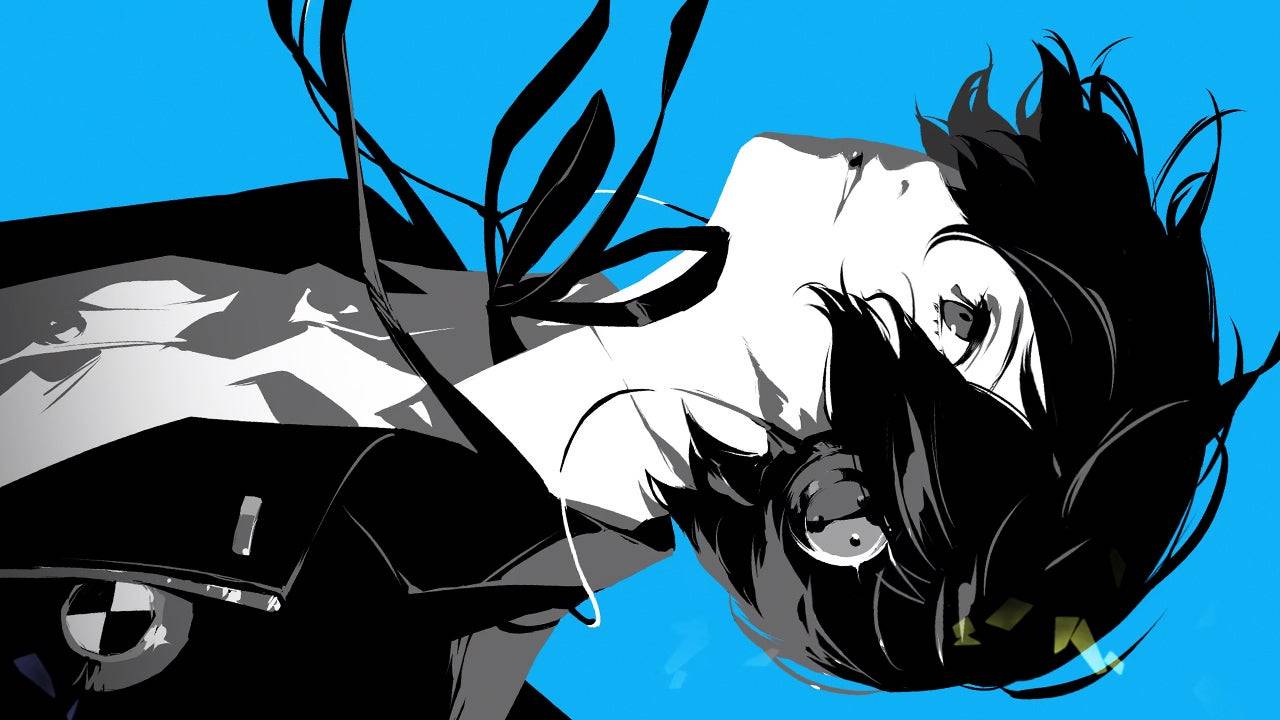
Persona 3 marked a significant shift in the series by integrating a daily calendar system. As Makoto Yuki, players navigate high school life during the day and explore the supernatural realm of Tartarus at night, where they uncover a sinister plot during the mysterious Dark Hour. Persona 3 introduced social links and other mechanics that became hallmarks of the franchise.
Read our review of Persona 3 Reload.
Alternate Versions of Persona 3:
Persona 3 has been re-released multiple times. Persona 3 FES expanded the game with The Answer and an alternate female protagonist campaign. Persona 3 Portable offered a handheld version with the female protagonist route but omitted The Answer. Persona 3 Reload is a full remake for modern consoles, excluding The Answer and the female protagonist route.
5. Persona 3: Dancing in Moonlight (2018)
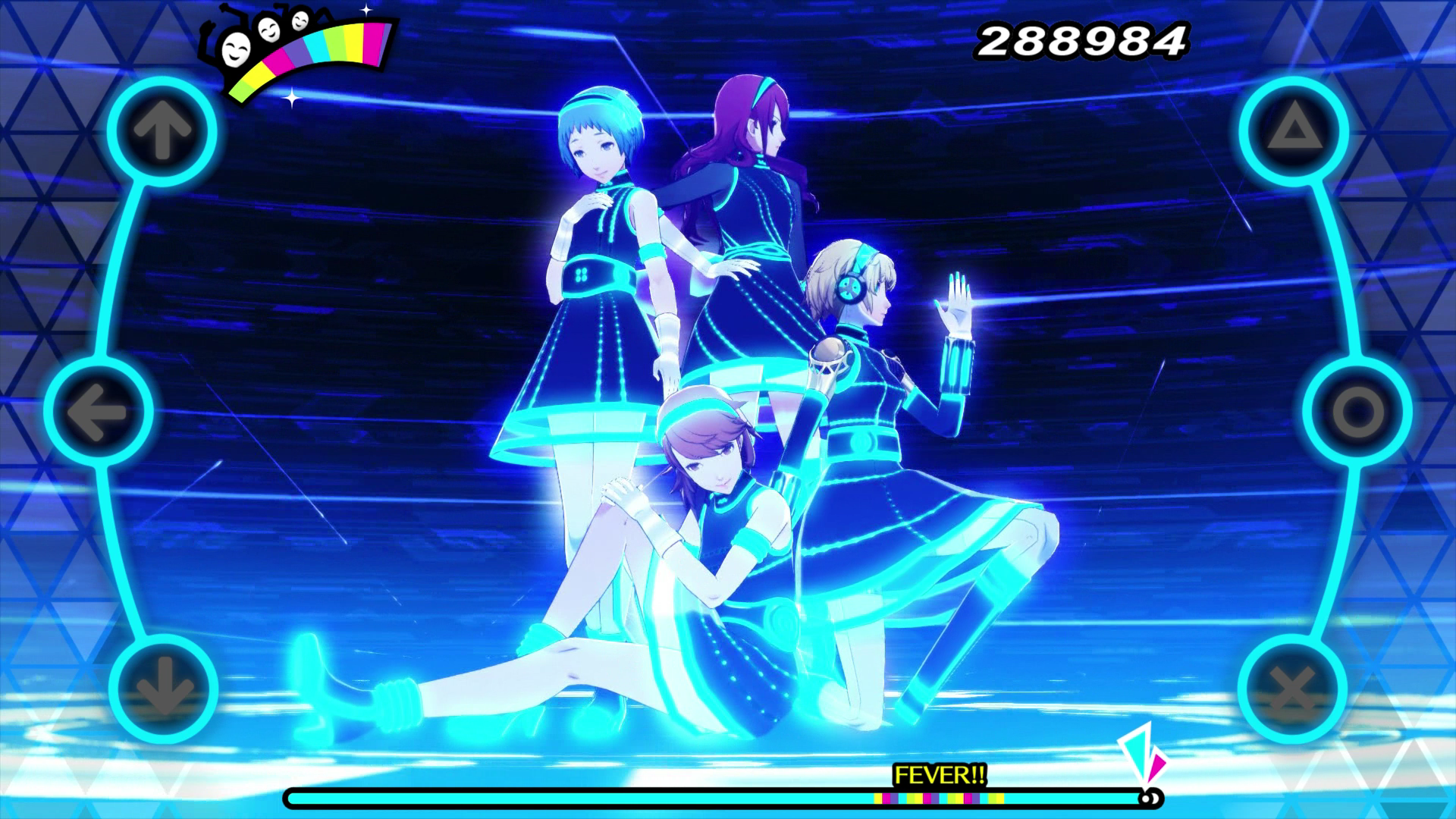
This rhythm-based dancing spin-off set during the main campaign of Persona 3 features Elizabeth challenging the S.E.E.S team to a dance-off in the Velvet Room. Although set in a dream, the events are canon, showcasing dance routines to iconic Persona 3 tracks.
6. Persona 4 (2008) / Persona 4 Golden (2012)
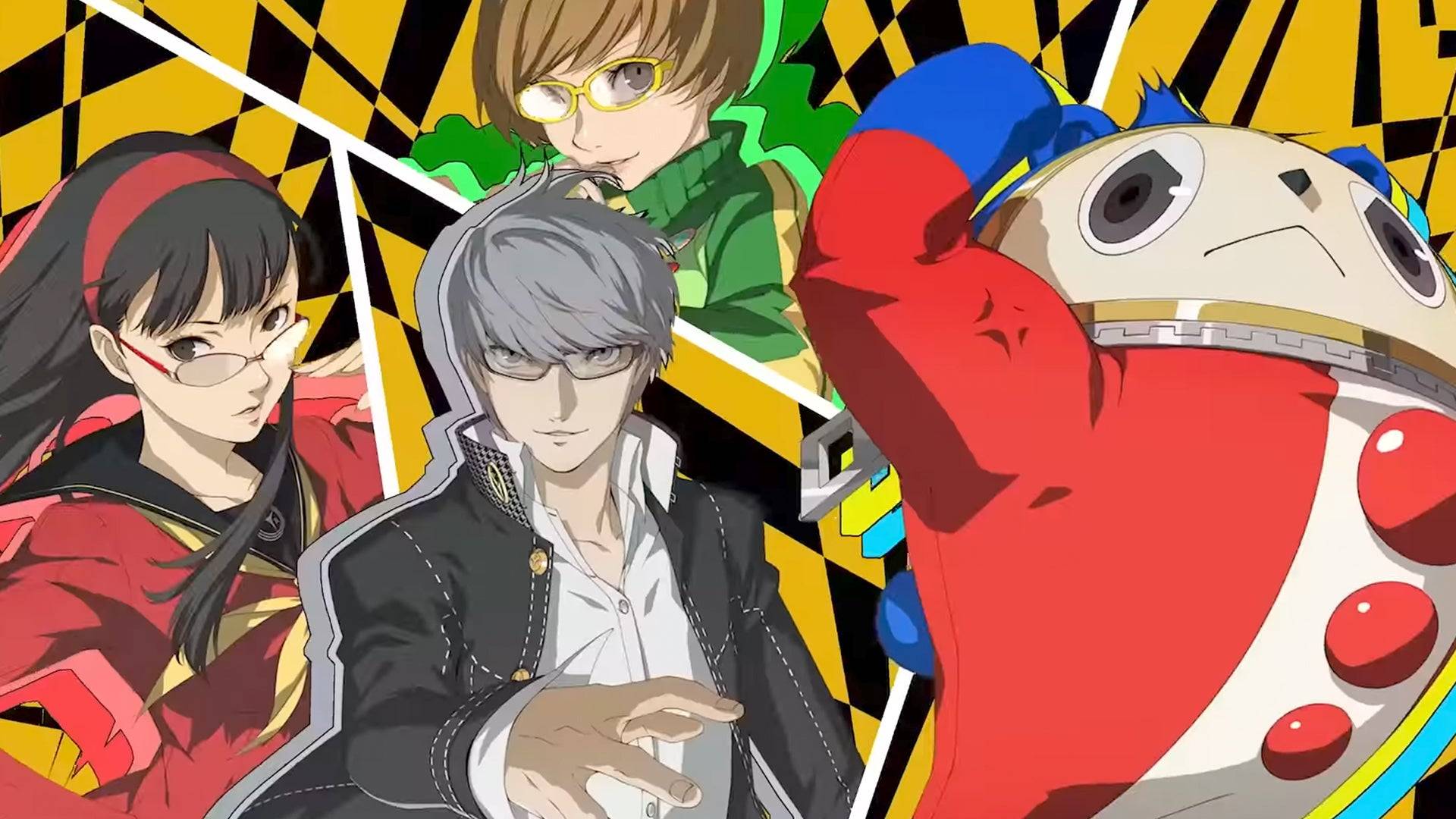
Set in the rural town of Inaba, Persona 4 follows Yu Narukami, who moves in with his uncle and cousin and discovers a link between local murders and an otherworldly realm accessible via TV monitors. The game builds upon Persona 3's mechanics with a calendar system and social links, while exploring vast dungeons and battling with Personas.
Read our review of Persona 4 Golden.
Alternate Versions of Persona 4:
Persona 4 Golden, released in 2012, is an expanded version featuring new story content and an additional dungeon, widely regarded as the definitive way to experience the game.
7. Persona Q: Shadow of the Labyrinth (2014)

A crossover between Persona 3 and 4, Persona Q: Shadow of the Labyrinth occurs during specific segments of both games. The S.E.E.S team and the Investigation Squad are trapped in a distorted version of Yasogami High School, working together to navigate a labyrinth and uncover an original story, echoing the series' traditional dungeon-crawler style.
Read our review of Persona Q: Shadow of the Labyrinth.
8. Persona 4 Arena (2012)
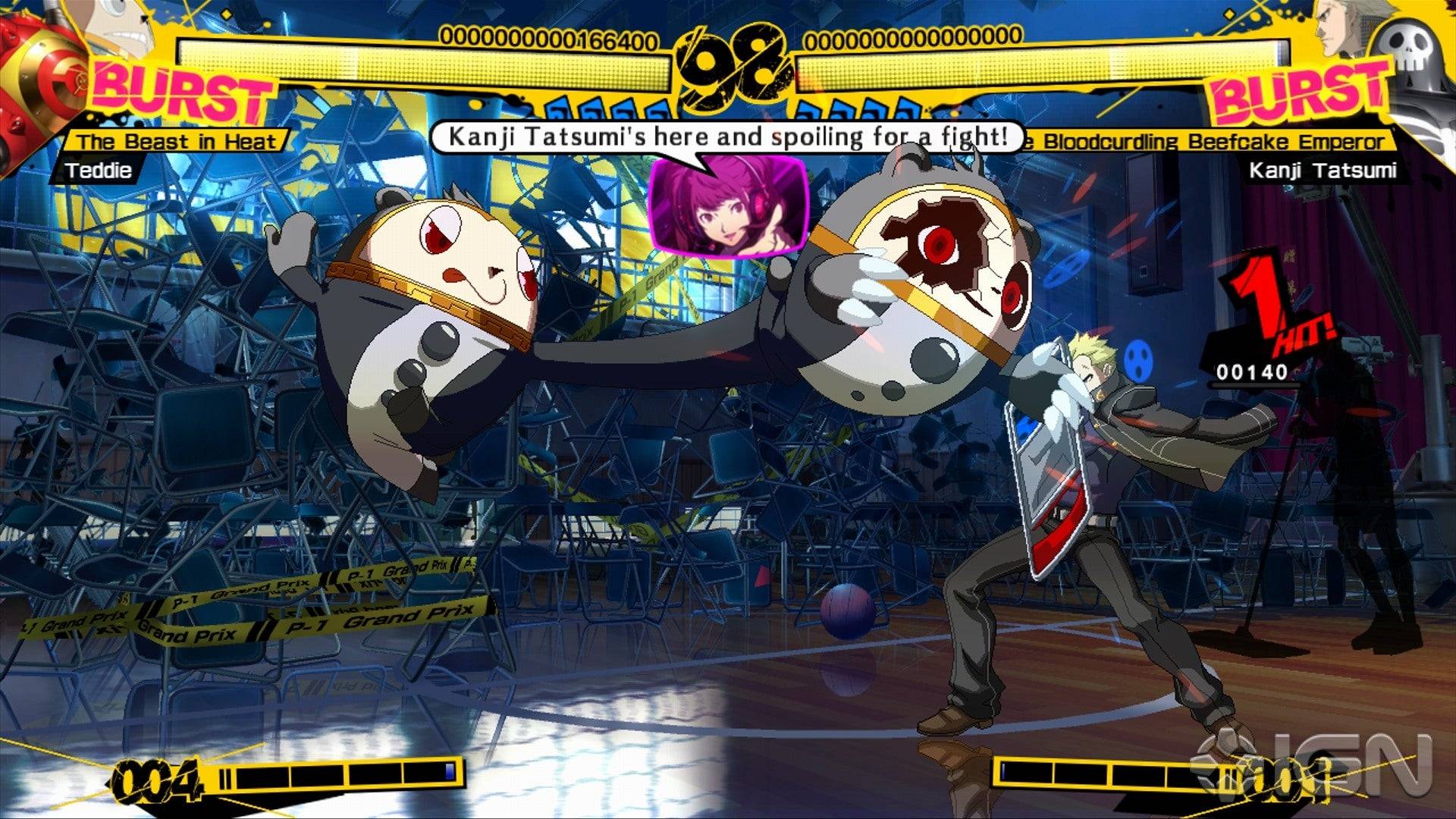
This fighting game spin-off continues the narratives of Persona 3 and 4, with Yu Narukami returning to Inaba and entering a mysterious fighting tournament in the TV world, facing both allies and the Shadow Operatives from Persona 3.
Read our review of Persona 4 Arena.
9. Persona 4 Arena Ultimax (2013)
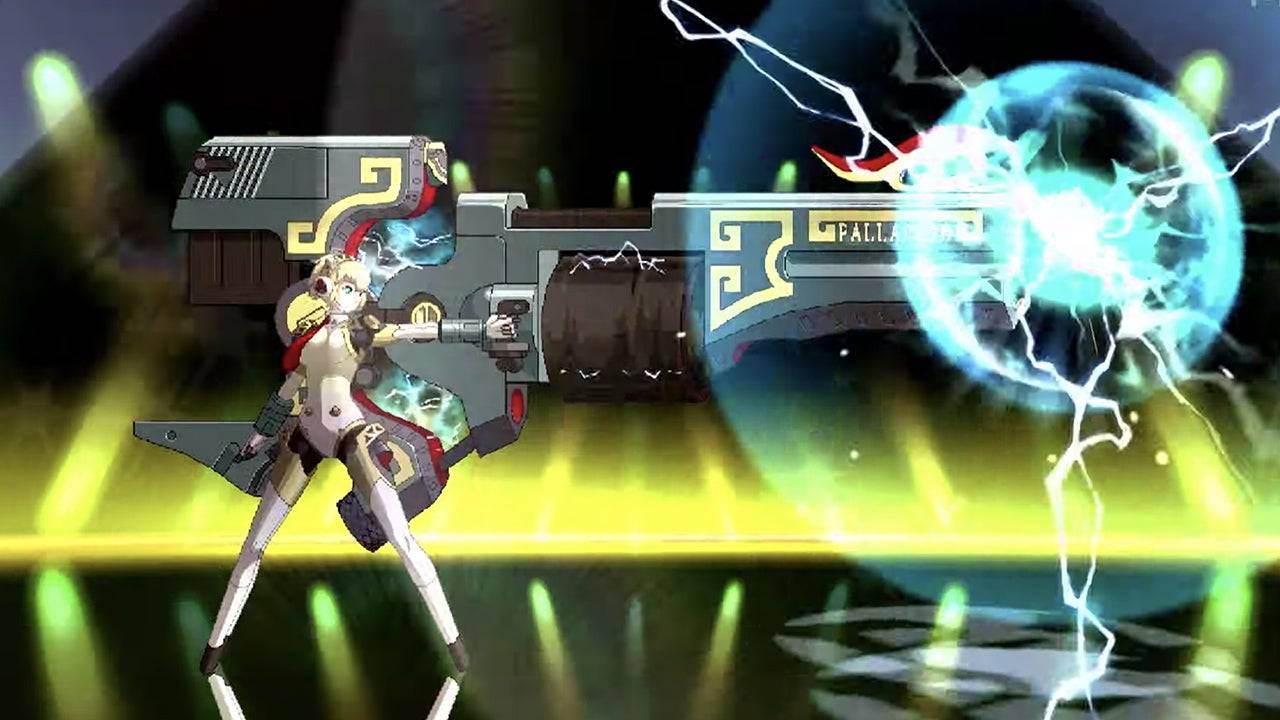
Following directly from Persona 4 Arena, Ultimax expands the roster and continues the story as the Persona 4 squad and Shadow Operatives team up to battle the forces behind the fighting tournament.
Read our review of Persona 4 Arena Ultimax.
10. Persona 4: Dancing All Night (2015)
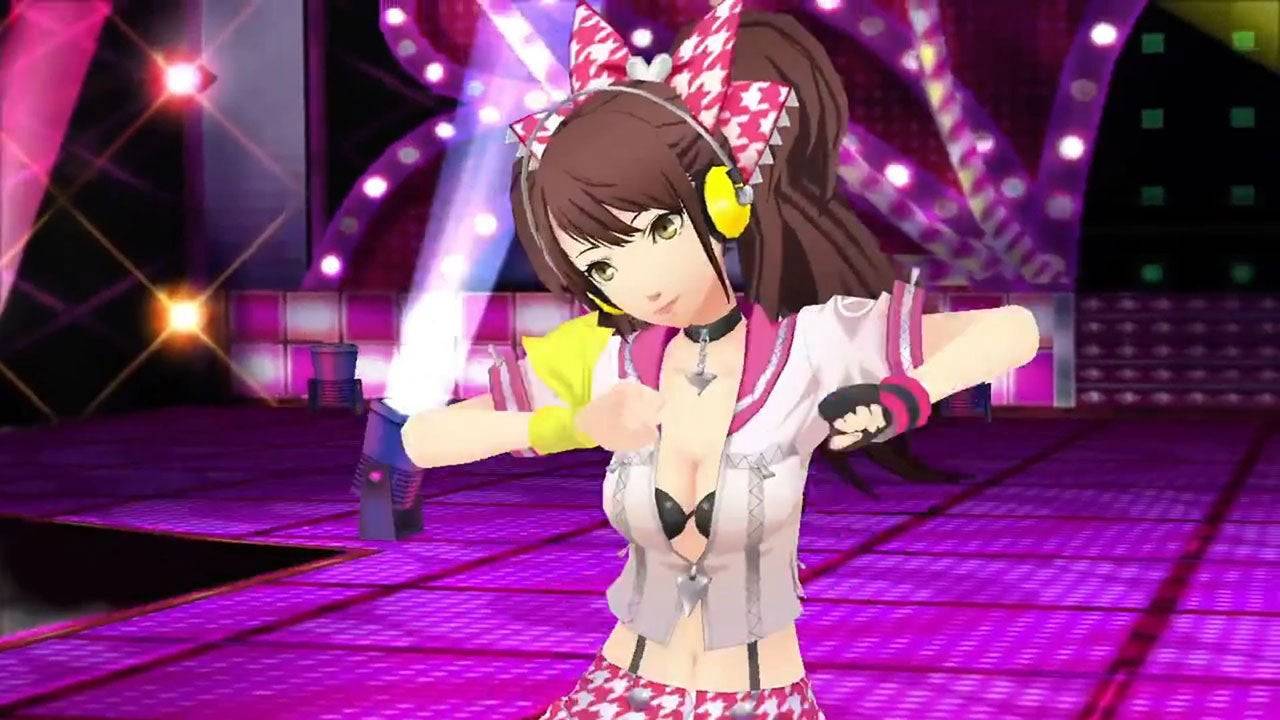
In this rhythm-based dancing game, the Investigation Squad performs dance routines to Persona tracks in an alternate dimension called the Midnight Stage, continuing the story in a canon fashion.
Read our review of Persona 4: Dancing All Night.
11. Persona 5 (2016) / Persona 5 Royal (2019)

Set in Tokyo, Persona 5 follows protagonist Joker, who, after being framed, navigates high school life while exploring supernatural palaces to change the hearts of corrupt individuals. The game introduces the Phantom Thieves, becoming Atlus' best-selling title and significantly expanding the franchise's fanbase.
Read our review of Persona 5 Royal.
Alternate Versions of Persona 5:
Persona 5 Royal, the expanded re-release, adds new features including a companion, dungeon, and semester, enhancing the overall experience.
12. Persona Q2: New Cinema Labyrinth (2018)
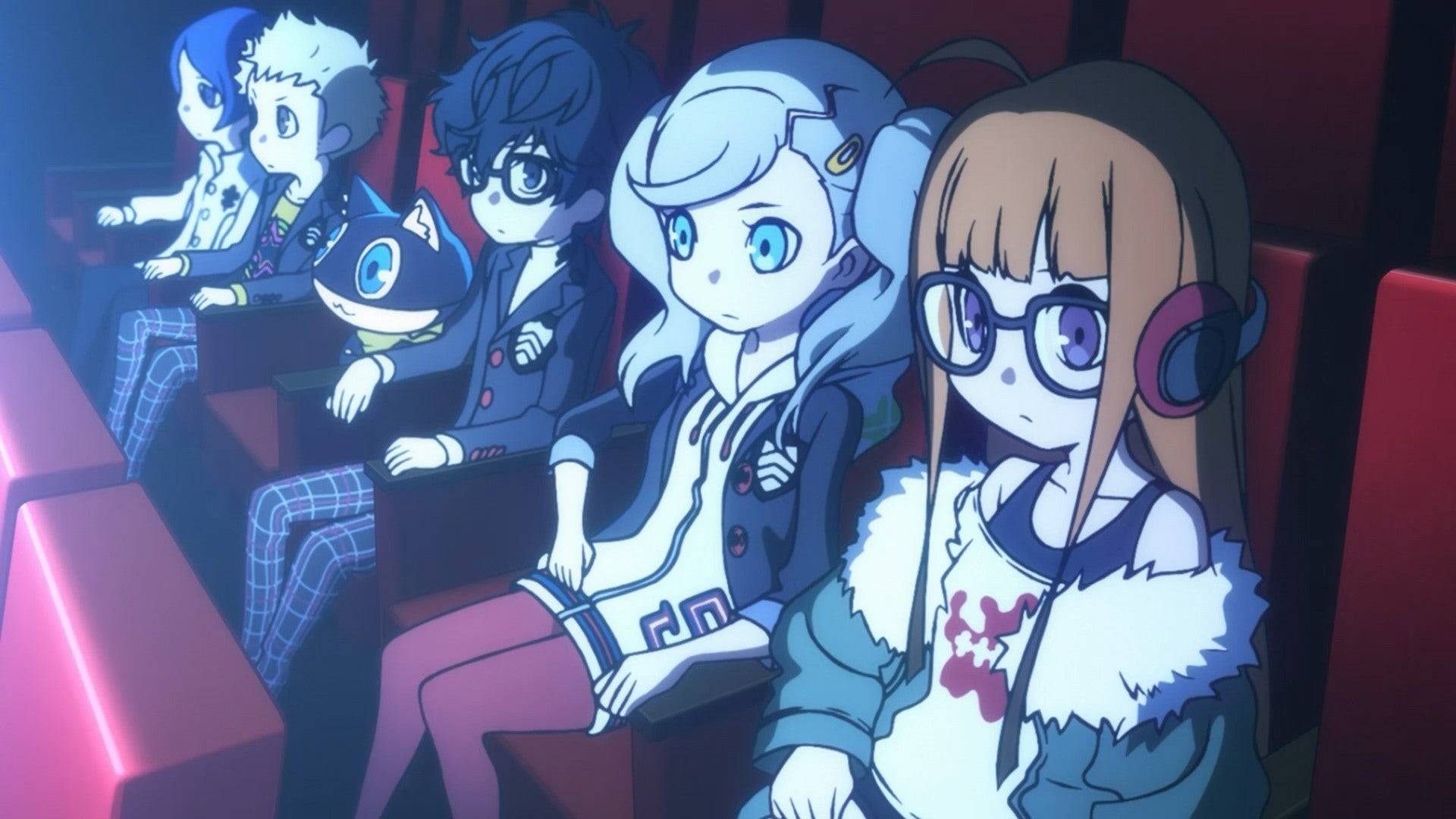
A sequel to Persona Q, New Cinema Labyrinth features a crossover between Persona 3, 4, and 5 characters. Trapped in a movie theater, they explore film-themed dungeons to escape, maintaining the first-person perspective and turn-based combat.
13. Persona 5 Tactica (2023)
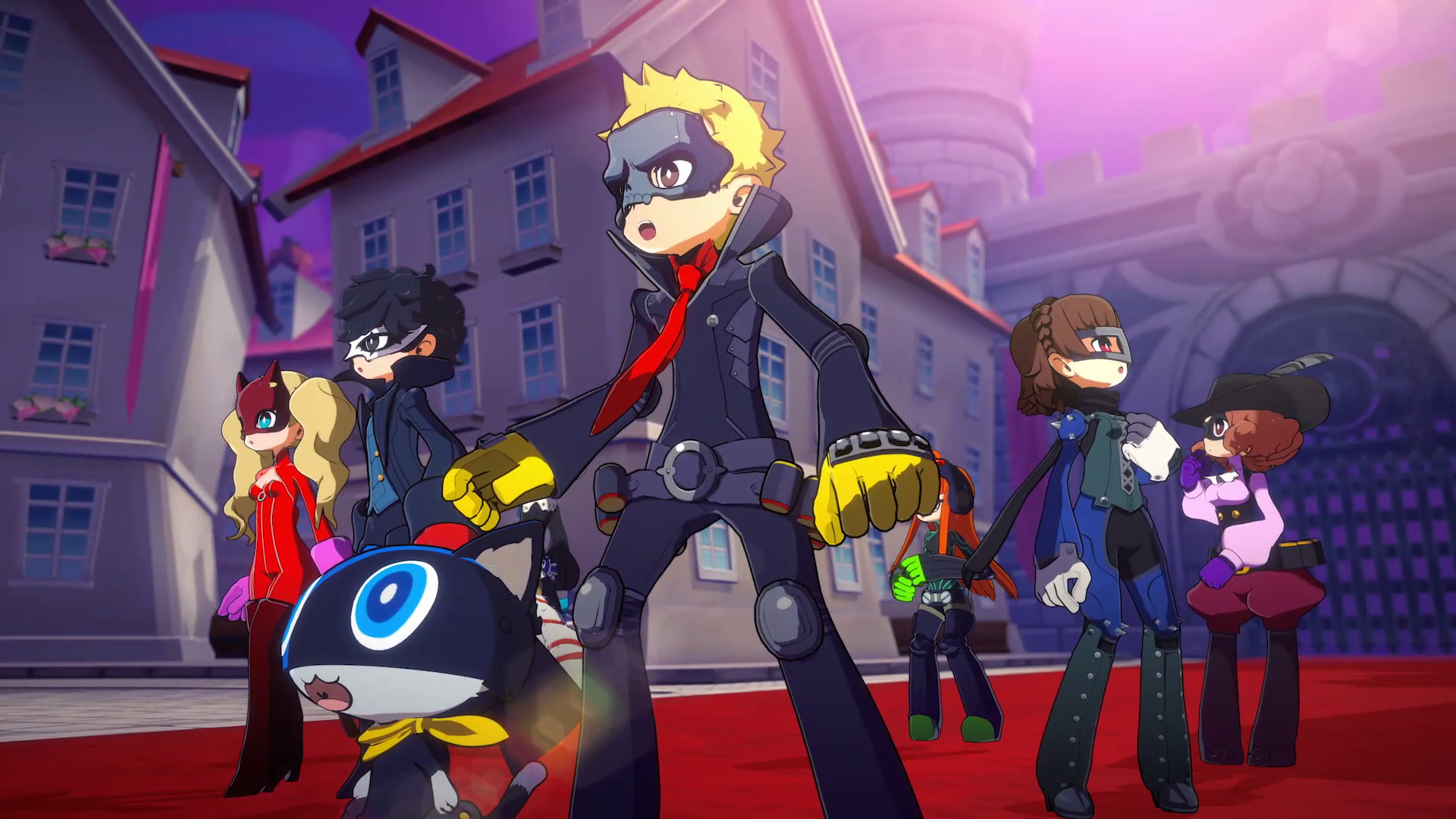
Set during the events of Persona 5, Tactica is a strategy-focused spin-off where the Phantom Thieves enter an alternate realm, the Kingdoms, to combat Tyrant Marie and her forces using a tactical grid-based combat system.
Read our review of Persona 5 Tactica.
14. Persona 5: Dancing in Starlight (2018)
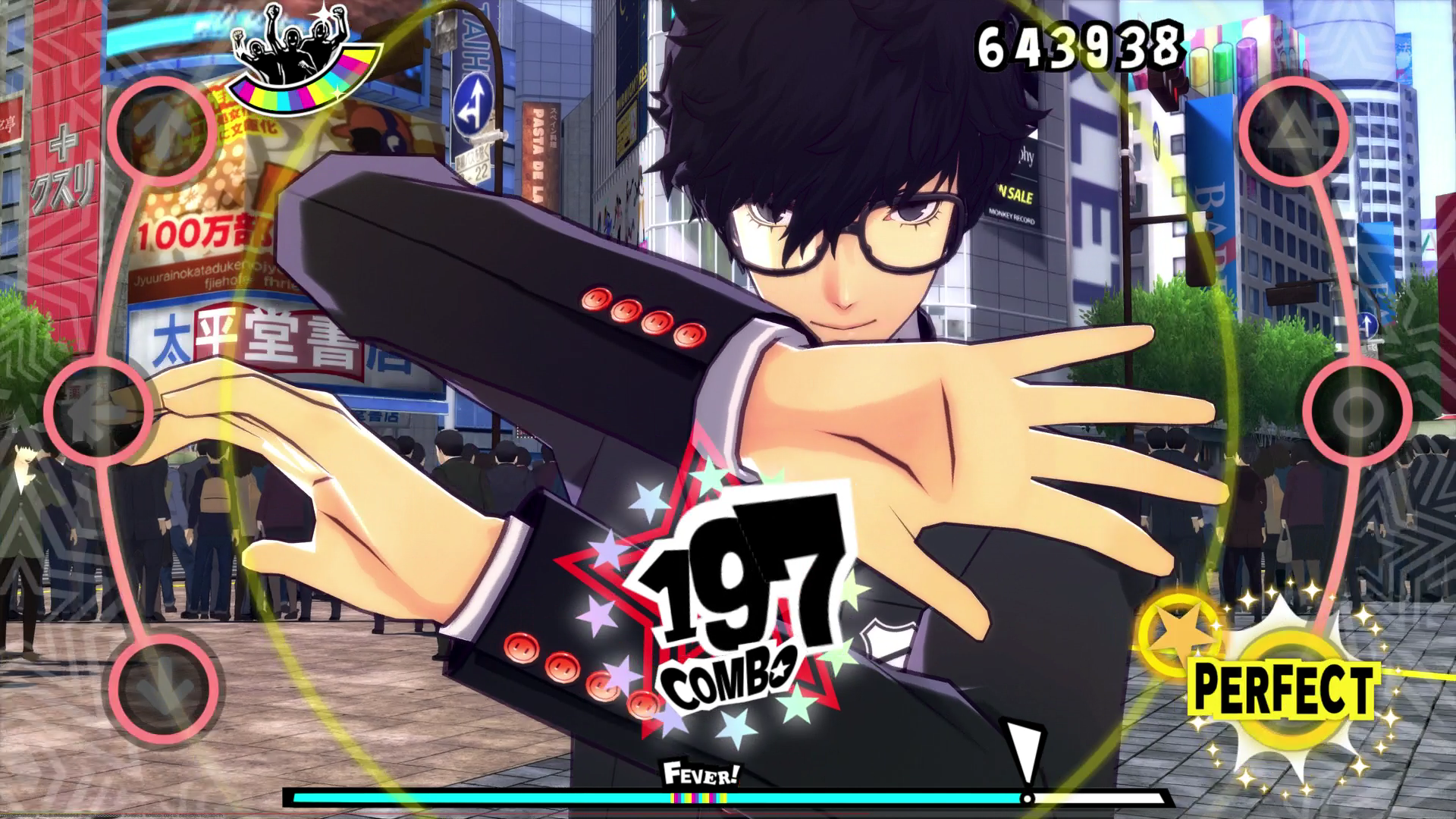
In this third dancing spin-off, the Phantom Thieves are challenged by Caroline and Justine in the Velvet Room to perform dance routines to Persona 5's iconic tracks.
15. Persona 5 Strikers (2020)
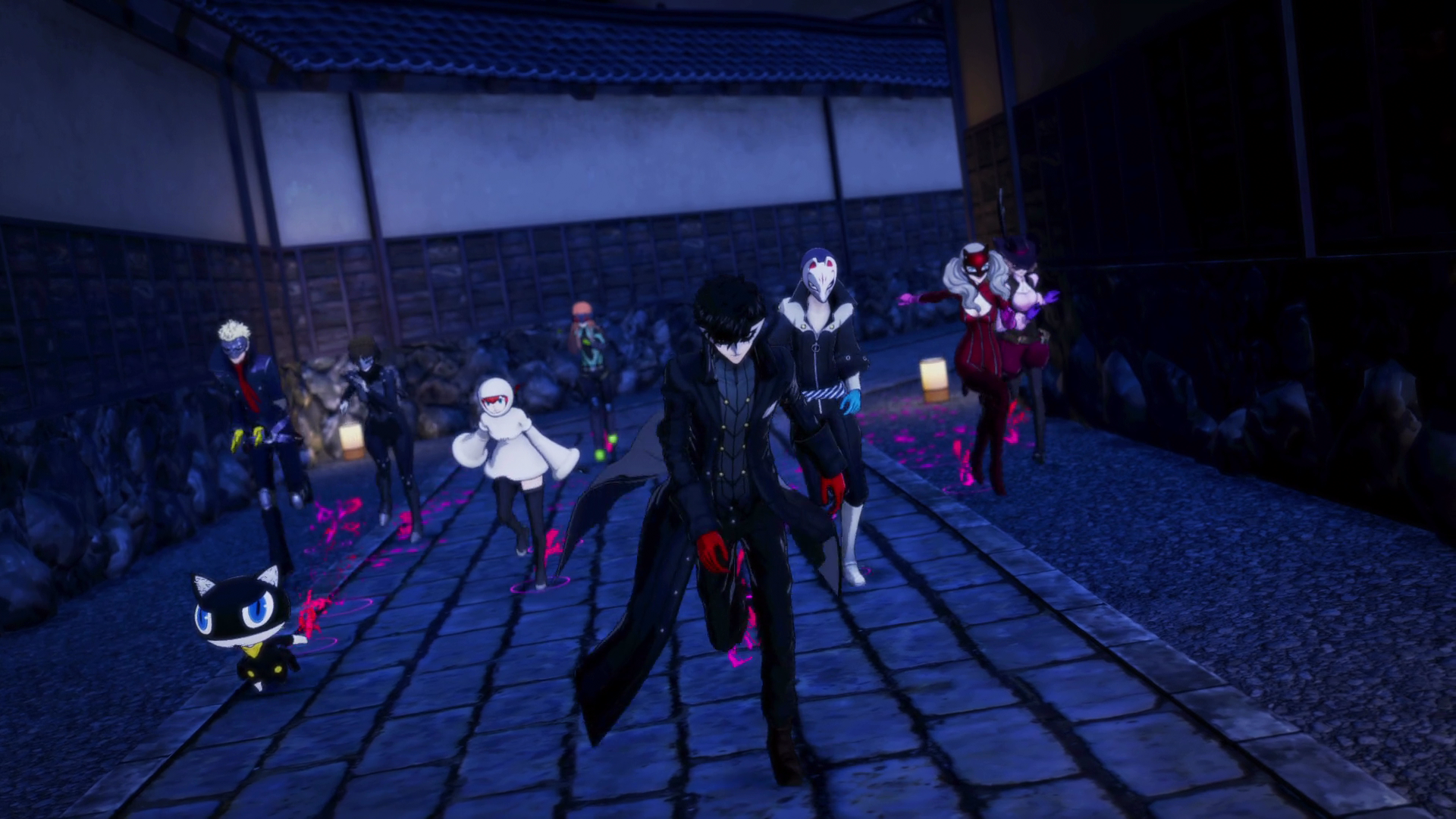
Set four months after Persona 5, Strikers reunites the Phantom Thieves for a summer vacation that turns into a Metaverse adventure. Featuring real-time combat inspired by the Dynasty Warriors series, they battle hordes of enemies and uncover the truth behind the EMMA app.
Read our review of Persona 5 Strikers.
Every Persona Game and Spin-Off in Release Order
- Revelations: Persona (1996)
- Persona 2: Innocent Sin (1999)
- Persona 2: Eternal Punishment (2000)
- Persona 3 (2006)
- Persona 3 FES (2007)
- Persona 4 (2008)
- Persona 3 Portable (2009)
- Persona 4 Arena (2012)
- Persona 4 Golden (2012)
- Persona 4 Arena Ultimax (2013)
- Persona Q: Shadow of the Labyrinth (2014)
- Persona 4: Dancing All Night (2015)
- Persona 5 (2016)
- Persona 3: Dancing in the Moonlight (2018)
- Persona 5: Dancing in the Starlight (2018)
- Persona Q2: New Cinema Labyrinth (2018)
- Persona 5 Royal (2019)
- Persona 5 Strikers (2020)
- Persona 5 Tactica (2023)
- Persona 3 Reload (2024)
What's Next for Persona?
In 2024, Atlus delighted fans with two releases: Persona 3 Reload and Metaphor: ReFantazio, a new RPG from Studio Zero. Following Metaphor's success and numerous awards, Sega expressed their commitment to further invest in Atlus and the Persona IP during a developers' Q&A session.
The next Persona project to keep an eye on is Persona 5: The Phantom X, a free-to-play mobile game released in China, Taiwan, Hong Kong, Macau, and Korea in 2024, with a Japanese release on the horizon following a closed beta sign-up in October. A global release is anticipated, though details are yet to be announced. The Phantom X promises an original story within the Persona 5 universe, featuring new characters stepping into the roles of the Phantom Thieves.
Looking further ahead, Persona 6 is eagerly awaited as the next mainline RPG in the series, though Atlus has not officially confirmed its development yet.


















